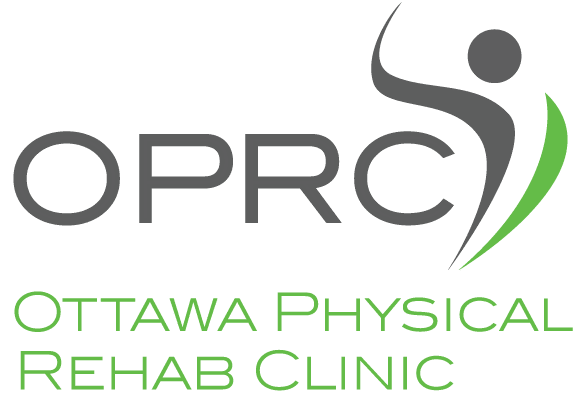
Health goals are easy to set—and often hard to keep. That’s where health coaching comes in. Designed to bridge the gap between knowing what to do and actually doing it, health coaching offers a structured, personalized way to build habits, improve outcomes, and stay on track. Rather than focusing on quick fixes, coaches help individuals make meaningful lifestyle changes that align with their goals and values. In this blog, we’ll explore how health coaching works, what benefits it offers, and why it’s an effective tool for long-term health and well-being.
Health Coaching Explained
Health coaching is a structured, collaborative process designed to help individuals take ownership of their health through guided behaviour change. Unlike traditional healthcare models that often emphasize prescriptive advice, health coaching is rooted in partnership. It draws from behavioural science, motivational interviewing, and goal-setting techniques to support people in making sustainable changes that align with their values and lifestyle.
A health coach works alongside the client to explore priorities, clarify intentions, and break larger goals into manageable steps. Sessions are typically scheduled on a regular basis—weekly, biweekly, or monthly—and provide space for reflection, planning, and accountability. Rather than focusing solely on outcomes, the coaching relationship centers on process, adaptability, and long-term growth. Coaches use active listening, open-ended questions, and structured frameworks to guide the conversation, but decisions and actions ultimately come from the client. This empowers individuals to build healthier routines through insight, ownership, and consistency—at a pace that works for them.
Key Benefits of Health Coaching
The benefits of health coaching extend beyond short-term improvements and focus on lasting lifestyle change. Clients often experience a wide range of positive outcomes that affect both physical and mental well-being.
- Improved Health Outcomes: Coaching can lead to better management of blood pressure, blood sugar, cholesterol, and other health metrics through behavioural change.
- Greater Self-Awareness: Clients gain insight into their habits, motivations, and barriers, making it easier to break unhealthy patterns.
- Sustainable Habit Formation: Health coaching emphasizes consistency and small, manageable steps, helping clients build habits that last.
- Enhanced Motivation and Confidence: The support and encouragement of a coach can boost self-efficacy and reduce the sense of isolation that often comes with health challenges.
- Better Stress Management: Many coaches help clients develop techniques to reduce stress and anxiety, which supports overall health and decision-making.
- Increased Accountability: Regular check-ins keep clients focused and help them stay on track even when progress feels slow.
Health coaching isn't just about achieving a goal—it's about building a healthier, more resilient lifestyle.
Goals That Can Be Addressed Through Health Coaching
Health coaching is highly adaptable and can support a wide range of personal health and health goals, both large and small.
- Lifestyle Changes: Support with improving diet, increasing activity levels, building a consistent sleep routine, or reducing alcohol consumption.
- Stress and Mental Well-Being: Techniques to cope with work-life balance, emotional eating, burnout, or chronic stress.
- Fitness and Performance: Help building sustainable exercise habits, setting realistic training goals, or improving energy levels.
- Preventative Health Goals: Coaching can help people reduce risk factors for chronic conditions through long-term lifestyle change.
- Workplace and Productivity Goals: Some clients focus on improving focus, energy, or workplace habits that impact overall health.
No matter the focus, coaching is always personalized and driven by the client’s unique priorities.
Weight Loss and Nutrition Goals: How Health Coaching Helps
Weight loss and nutrition are two of the most common areas clients focus on with a health coach. But unlike restrictive diets, coaching encourages sustainable, realistic changes based on the individual’s lifestyle.
- Personalized Nutrition Planning: Coaches help clients understand how to make food choices that align with their preferences and health needs without rigid rules.
- Mindful Eating Support: Clients learn how to recognize hunger and fullness cues, reduce emotional eating, and develop a healthier relationship with food.
- Progress Over Perfection: The emphasis is on long-term consistency rather than quick fixes or all-or-nothing thinking.
- Accountability and Structure: Regular check-ins provide encouragement and a framework for maintaining momentum and adjusting goals when needed.
- Behaviour-based Tools: Rather than focusing solely on calories or macros, coaching addresses the underlying behaviours that influence food choices.
This approach can lead to lasting improvements in body composition, energy levels, and overall well-being.
Specific Conditions Health Coaching Can Help With
While health coaches don’t treat medical conditions, they often work alongside healthcare providers to support clients with chronic illnesses or specific conditions.
- Diabetes and Prediabetes: Coaching supports blood sugar management through education, behaviour change, and goal-setting around diet and physical activity.
- Hypertension: Clients learn how to reduce sodium intake, increase movement, and manage stress to improve blood pressure control.
- High Cholesterol: Coaches can help implement heart-healthy lifestyle strategies that are sustainable over time.
- Autoimmune and Inflammatory Conditions: Coaching may focus on dietary triggers, stress management, and sleep hygiene to support overall symptom management.
- Chronic Pain or Fatigue: Clients work on pacing, movement strategies, and self-care practices that improve quality of life.
Health coaching can be a valuable complement to clinical care by helping clients stay engaged and proactive in their management strategies.
Is Health Coaching Effective for Managing Chronic Conditions?
Health coaching has proven to be a valuable support tool for individuals managing chronic health conditions. It empowers clients to take an active role in their health by helping them build confidence and develop strategies for day-to-day self-management. Research has shown that coaching can lead to measurable improvements in clinical markers, such as lower A1C levels for those with diabetes, better blood pressure control in hypertension, and improved cholesterol levels.
Beyond the numbers, coaching helps reinforce medical treatment plans by providing guidance on how to implement recommended changes related to medication, diet, and physical activity. It also supports long-term behaviour change in areas like nutrition, sleep, and exercise—key factors in reducing the overall burden of chronic illness. Many clients find that regular sessions with a health coach fill the gap between medical appointments, offering ongoing encouragement and accountability. While it isn’t a substitute for medical care, health coaching can complement traditional treatment by helping clients stay on track and avoid complications over time.
Techniques Used in Health Coaching
Health coaches draw from a variety of methods and frameworks, often grounded in behaviour change psychology, motivational interviewing, and health education.
- Motivational Interviewing: A conversational technique that helps clients uncover their own reasons for change and build internal motivation.
- SMART Goal Setting: Goals are crafted to be Specific, Measurable, Achievable, Relevant, and Time-bound to support focused progress.
- Behavioural Tracking: Clients may use journals, apps, or checklists to reflect on behaviours and identify patterns or barriers.
- Positive Psychology Practices: Emphasis is placed on strengths, values, and gratitude to support emotional resilience.
- Action Planning and Habit Stacking: Clients learn how to integrate new habits into existing routines to increase follow-through and ease of adoption.
The tools used vary based on the coach’s training and the client’s needs, but the focus is always on empowerment and growth.
How Often Should You Meet With a Health Coach for Optimal Benefits?
There’s no one-size-fits-all schedule when it comes to health coaching, but consistency plays a key role in making progress. During the early stages of coaching, many clients find that meeting weekly or biweekly helps build momentum, clarify goals, and establish healthy habits. As progress is made and routines become more stable, the frequency may shift to monthly sessions focused on maintaining results and making small adjustments as needed. Some people benefit from ongoing weekly support over longer periods, while others gradually taper off once their goals are achieved.
The format is also flexible—many coaches offer in-person, virtual, or phone sessions to accommodate busy schedules and individual preferences. The best schedule is one that offers enough structure to support accountability while allowing time between sessions to reflect, implement changes, and reassess. For clients working toward time-sensitive milestones, such as recovering after surgery or preparing for an event, a more frequent cadence might be helpful. Ultimately, coaching should match the pace and needs of the individual.
Signs You Could Benefit From Health Coaching
Not sure if health coaching is right for you? There are several signs that indicate it may be a good fit:
- Struggling with Consistency: If you’ve tried to make health changes before but find yourself slipping back into old habits.
- Overwhelmed by Health Information: A coach can help you filter through advice and focus on what’s actually relevant to your goals.
- Dealing with a Chronic Condition: If you have a condition that requires long-term lifestyle changes, coaching can support the process.
- Lacking Accountability: If you work better with regular check-ins or structured support, a coach can help keep you on track.
- Feeling Stuck or Unmotivated: A coach can help you reconnect with your “why” and identify small steps that feel doable again.
- Navigating a Life Transition: Major changes like pregnancy, surgery, or a career shift may require rethinking your health habits.
Health coaching is particularly useful when knowledge isn’t the problem—but translating that knowledge into lasting change is.
Mental Well-Being and Stress Management: The Role of Health Coaching
Mental well-being and stress management are often central themes in health coaching, especially because chronic stress can derail even the best health plans.
- Supports Emotional Resilience: Coaches often use tools from positive psychology and mindfulness to help clients manage stress more effectively.
- Improves Self-Awareness: Clients learn to recognize stress triggers and develop healthier coping mechanisms.
- Encourages Boundaries and Balance: Coaching can help clients restructure their routines to support work-life balance and self-care.
- Promotes Restorative Habits: Focus on sleep hygiene, physical activity, and time outdoors can support mood and cognitive function.
- Reduces Burnout Risk: By helping clients reconnect with their values and priorities, coaching can reduce feelings of overwhelm and exhaustion.
- Builds a Supportive Space: Regular sessions provide a safe, non-judgmental place to talk through challenges and celebrate progress.
Improved mental health is often a byproduct of working on physical health—and vice versa.
Let Us Help You Optimize Your Health
If you're looking to make real, sustainable changes to your health but aren't sure where to start—or how to stick with it—health coaching may be the missing piece. At Ottawa Physical Rehab Clinic, our health coaching programs are designed to support you with evidence-based strategies, compassionate guidance, and a plan that fits your life. Reach out today to learn how coaching can help you turn your goals into long-term success.

